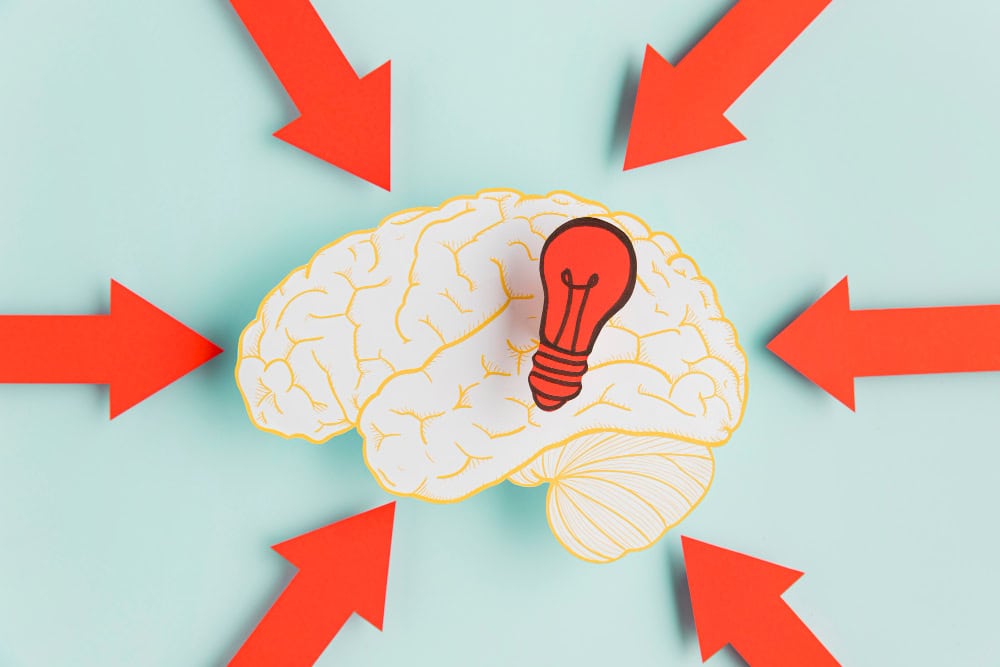
We live in a world that is always buzzing and full of distractions. While keeping your memory and focus sharp is a great advantage in modern life, actually doing so feels like an uphill battle. Endless screens, disrupted sleep, and tightly packed schedules take a toll on the brain, an organ that keeps working 24/7. As a result of this fatigued brain, your memory and ability to concentrate take a hit, making brain fog and forgetfulness an unwanted companion. But the good news is, you can actually change that. More and more research is showing how everyday decisions, such as what you eat and how you sleep, can improve memory and maintain a healthy brain. Let’s dive into the top 7 things that can boost your memory and focus.
7 Things To Do For Improving Memory
1- Sleep Well
One of the most common causes of mental exhaustion is sleep deprivation. It impairs a range of cognitive abilities, including memory. Getting the necessary quantity of quality sleep improves procedural memory formation, which influences acquiring new skills and recalling previously stored knowledge. Experts recommend 7-8 hours of sound sleep for adults. Meanwhile, not just the quantity but apparently also its quality is important. Try to put your phone aside before bed and take some time to unwind mentally. While you sleep, your brain reorganizes memories and strengthens the connections between them. This is also when your brain connects new information to previous material, which promotes creativity during waking hours.
2- Stay Organized
You are more prone to forget things if your home is messy or the information is disorganized. Organize your tasks, appointments, and other activities in a notebook, calendar, or electronic planner. To aid with memory retention, you may even read aloud each entry as you type it down. Keep your to-do list up to date. Check off the items you’ve finished. Keep your wallet, keys, glasses, and other vital belongings in a specific location in your home so that they are easily accessible. Minimize distractions. Avoid doing too many things at once. If you focus on something you want to remember, you are more likely to recall it later. It also might help to connect what you’re trying to remember to a favorite song, a familiar saying, or an idea.

3- Puzzles & Games
Puzzles are to the mind what a whetstone is to a sword. Your brain, like any other muscle in your body, requires exercise. Your brain thrives on challenges. Puzzles and logic games challenge your brain to think and connect. Despite the fact that you are in a problem-solving and decision-making position, your brain is not under any real strain because there are rarely serious repercussions. Routine challenges keep your brain working while also providing a hearty mental workout in an entertaining way. Play puzzle games or physical brainteasers that require pattern recognition or memory recall. Many websites and applications provide regular brain activities as well as a community of like-minded people striving to keep a healthy memory.
4- Eat Brain-Boosting Foods
You are what you eat, and apparently so is your brain. Brain nutrition plays a significant role in its functioning and cognitive abilities. Consuming the right nutrition is simple yet one of the most effective ways to keep your memory sharp and cognitive skills on top. Certain nutrients like omega-3 fatty acids, which are found in fatty fish, walnuts, and chia seeds, have been linked to better brain health. Moreover, berries, which are rich in antioxidants, are also good for your brain, along with nuts, seeds, and leafy green vegetables. Additionally, dark chocolate is also a food good for your brain. It is rich in flavanols, can improve blood flow to the brain, and promotes serotonin to make you feel calmer and boost alertness, resulting in more efficient processing of information.
5-Utilize Mnemonic Devices
Students frequently utilize mnemonic techniques to help them recall information. Simply put, a mnemonic is a method of information retention. For example, you can identify a difficult-to-remember term with a common item with which you are quite familiar. The most effective mnemonics make use of novelty, comedy, or positive imagery.
Research suggests that mnemonic techniques can be an effective way to improve memory. Using a mnemonic acronym can help people remember a task sequence. Studies indicate that this may also be helpful in lessening the impact of disruptions in tasks that require adhering to a specific set of protocols. Hence, employing memory techniques like mnemonics improves your ability to recall knowledge overall rather than just helping you remember things better.
6- Practice Mindfulness
Stress can have a detrimental effect on memory. Finding healthy strategies to deal with stress might also improve your memory. This is when mindfulness techniques like deep breathing exercises and meditation are useful. Regular mindfulness meditation practice enhances the size and connection of the hippocampus, the brain area responsible for memory and learning. Meditation also reduces cortisol levels, which protects the brain from stress-induced memory impairment. This leads to higher memory recall and concentration. To keep your brain healthy, practice mindfulness by focusing on the present moment and quieting your thoughts. If you find it difficult to stay still for more than a few minutes, go for a meditation walk or sit in a relaxing environment.
7- Physical Workout
Regular exercise boosts blood flow to the brain, which provides cognitive benefits such as increased alertness, improved attention, and a pleasant mood. Additionally, it might help improve your memory and general brain function as you age. Moreover, research indicates that engaging in regular exercise during midlife can reduce the likelihood of dementia development as you age. It does not have to be strenuous exercise—three hours of walking each week is sufficient to get some benefits. Including exercise in your everyday routine improves brain function and increases memory. Any workout regimen that fits in your routine can help keep your body and brain healthy.
FAQs
1-What causes poor memory & focus in everyday life?
Chronic stress, inadequate sleep, poor diet, dehydration, and excessive screen time are common contributors. These elements can overload the brain, resulting in mental exhaustion and forgetfulness.
2- How does sleep affect memory and focus?
Good sleep is crucial for sharp memory and concentration because it helps your brain create new memories, fortify neural connections, and enhance creativity.
3-How does exercise affect brain health?
Memory and attention span can be enhanced by physical activity because it increases blood flow to the brain and promotes the release of growth factors that support the formation of new brain cells.
4-What foods are best for boosting brain health?
Fatty fish, berries, nuts, seeds, leafy greens, and dark chocolate are all foods that are good for your brain and memory since they are high in omega-3 fatty acids and antioxidants.
5- Can playing puzzles and games really improve brain function?
Yes, puzzles and brain games are fun ways to work out your brain and improve your memory and problem-solving skills.
(The article is written by Ehsan Siddiqui, Team Lead, Clinical Health & Content and reviewed by Monalisa Deka, Senior Health Content Editor)
Recommended Reads
How Gut Health Affects Your Brain: The Science Behind the Gut-Brain Connection
Fuel Your Mind for Optimal Performance: Essential Nutrients for Brain Health